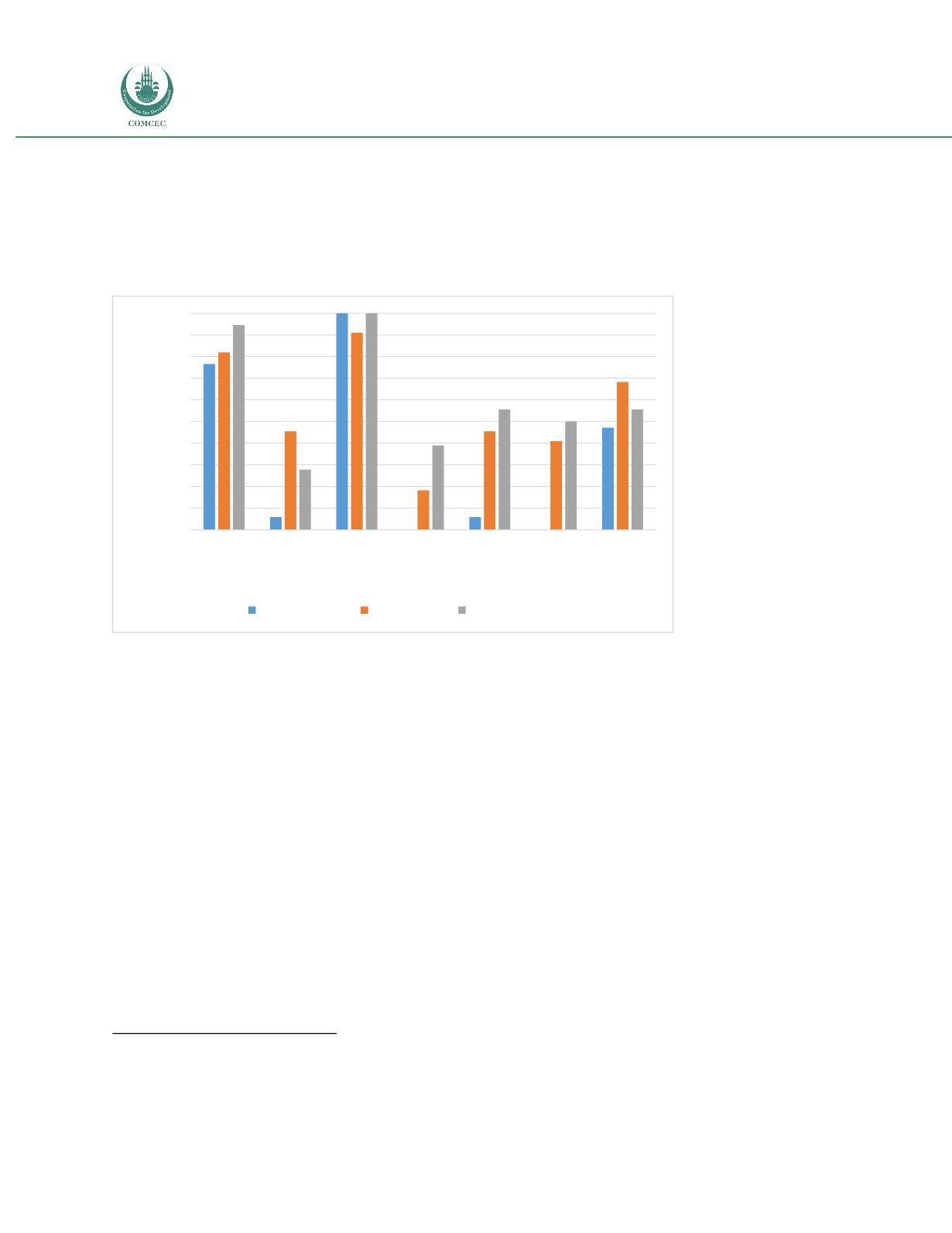

Strengthening the Compliance of the OIC Member States
to International Standards
46
adequately reflect African realities, as these countries are unable to have an effective voice in
proceedings.
Figure 6: Percentage of OIC regional group members that participate in selected international
standards organizations
Source: Organization websites. Note: Participation is taken as including correspondent and associate
membership.
2
4.5
Supporting the Participation of Developing Countries in International Standard
Setting
International standards organizations typically have technical assistance and capacity building
programs available for developing countries, with the aim of increasing their participation in the
standard-setting process. In addition to agency specific programs, a number of multilateral efforts are
also relevant (Shepherd, 2014). The multi-agency Standards and Trade Development Facility provides
financial assistance for standards-related projects in developing countries. In addition, UNIDO has
programs to support the development of quality infrastructure in developing countries, and the
Enhanced Integrated Framework supports LDCs in this area.
2
In addition to the organizations listed here, Turkey is also a member of the European standards body CEN. As a full member of CEN and
CENELEC (European standardization institutions), Turkish Standards Institute (TSE) had harmonized 98% of the EN standards. In
addition to 3,469 ISO and 228 IEC standards, 18,385 European Standards (CEN, CENELECE) were also adopted as Turkish Standards by
TSE.
0
10
20
30
40
50
60
70
80
90
100
ISO
IEC Codex
IAF
ILAC BIPM OIML
Percent
Organization
African Group Arab Group Asian Group
















